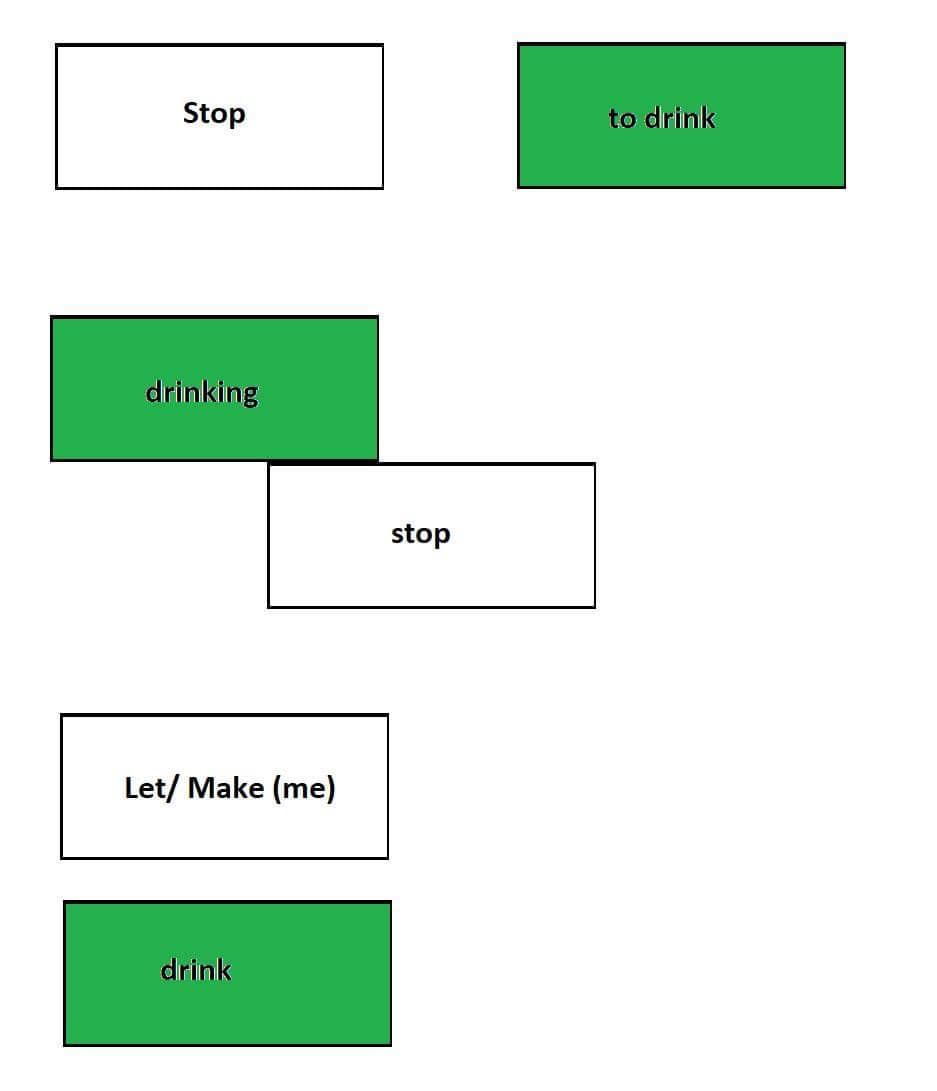To Infinitive, Bare Infinitive, Gerund
ENGLISH TRANSLATION BELOW
Ai đã từng học qua ngữ pháp Tiếng Anh chắc cũng từng có những lần đau khổ khi không biết lúc nào phải dung cái gì, tại sao lại là want to go? like to go? like going? và let me go?. Đa số các giáo viên mình biết đều không thể giải thích được mà toàn đưa ra quy tắc khá loằng ngoằng.
- Gerund
V + ing hiểu nôm na là có sự trùng lặp 1 phần giữa 2 processes và/hoặc process bị danh từ hóa thành 1 sự việc, object
- To + infinitive
To + infinitive có sự phân tách thời gian (process sau sẽ đi sau process của động từ chính) và mang thêm hàm ý volition.
- Bare infinitive
Bare infinitive sẽ có sự trùng lặp hoàn toàn giữa 2 processes
Phân tích 1 số ví dụ:
- I like drinking (danh từ hóa)
- I like to drink (việc uống xảy ra sau, vậy nên nó mang hàm ý nhất thời)
- I want to drink (na ná giống like, có volition mạnh hơn)
- ??? I want drinking (người ta không nói như này vì want mang hàm ý volition nên thường phải đi cùng to)
- I stop drinking (trùng lặp 1 phần giữa stop và drink)
- I stop to drink (stop trước rồi mới đến drink, có thêm volition)
- Let me drink (trùng lặp hoàn toàn giữa let và go)
Một số từ dễ bị nhầm, khó phân biệt:
- Force me to do vs make me do?
Force chỉ thể hiện lực tác động, còn việc bạn có uống hay không thì … không ai biết (không có overlap) nhưng make tức là bạn uống theo cái lực tác động đó (có overlap)
He forced me to drink it, but I refused
*He made me drink it, but I refused
- Cease to do và cease doing vs stop doing?
Cease có thể dung được với cả to V và V + ing, tuy nhiên cease to + V có vẻ phổ biến hơn và cả 2 cách dung đều có nghĩa na na stop doing. Một số người đã chỉ ra rằng cease không mang hàm ý mạnh, dứt khoát như stop, vậy nên 2 sự việc có thể không có overlap.

ENGLISH TRANSLATION
- Gerund
V + ing means there is partial overlap between two processes and/or the process is nominalized into an event, an object.
- To + infinitive
To + infinitive indicates a temporal separation between the two processes (the process after the main verb comes later) and implies volition.
- Bare infinitive
Bare infinitive has complete overlap between two processes.
Examples:
- I like drinking (nominalized process)
- I like to drink (the act of drinking happens later, implying temporal volition)
- I want to drink (similar to “like”, but with stronger volition)
- ??? I want drinking (this is not correct because “want” implies volition, so it usually requires “to”)
- I stop drinking (partial overlap between “stop” and “drink”)
- I stop to drink (the action of stopping comes first, then drinking follows, implying volition)
- Let me drink (complete overlap between “let” and “drink”)
Some confusing phrases:
- Force me to do vs make me do?
“Force” indicates exerting force, while whether you drink or not is unknown (no overlap). However, “make” implies that you drink due to that force (with overlap).
He forced me to drink it, but I refused.
*He made me drink it, but I refused.
- Cease to do and cease doing vs stop doing?
“Cease” can be used with both “to V” and “V + ing”, but “cease to + V” seems more common, and both forms have the same meaning as “stop doing”. Some people have pointed out that “cease” may not be as strong or decisive as “stop”, so the two actions may not overlap.